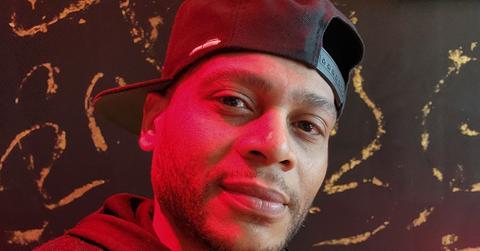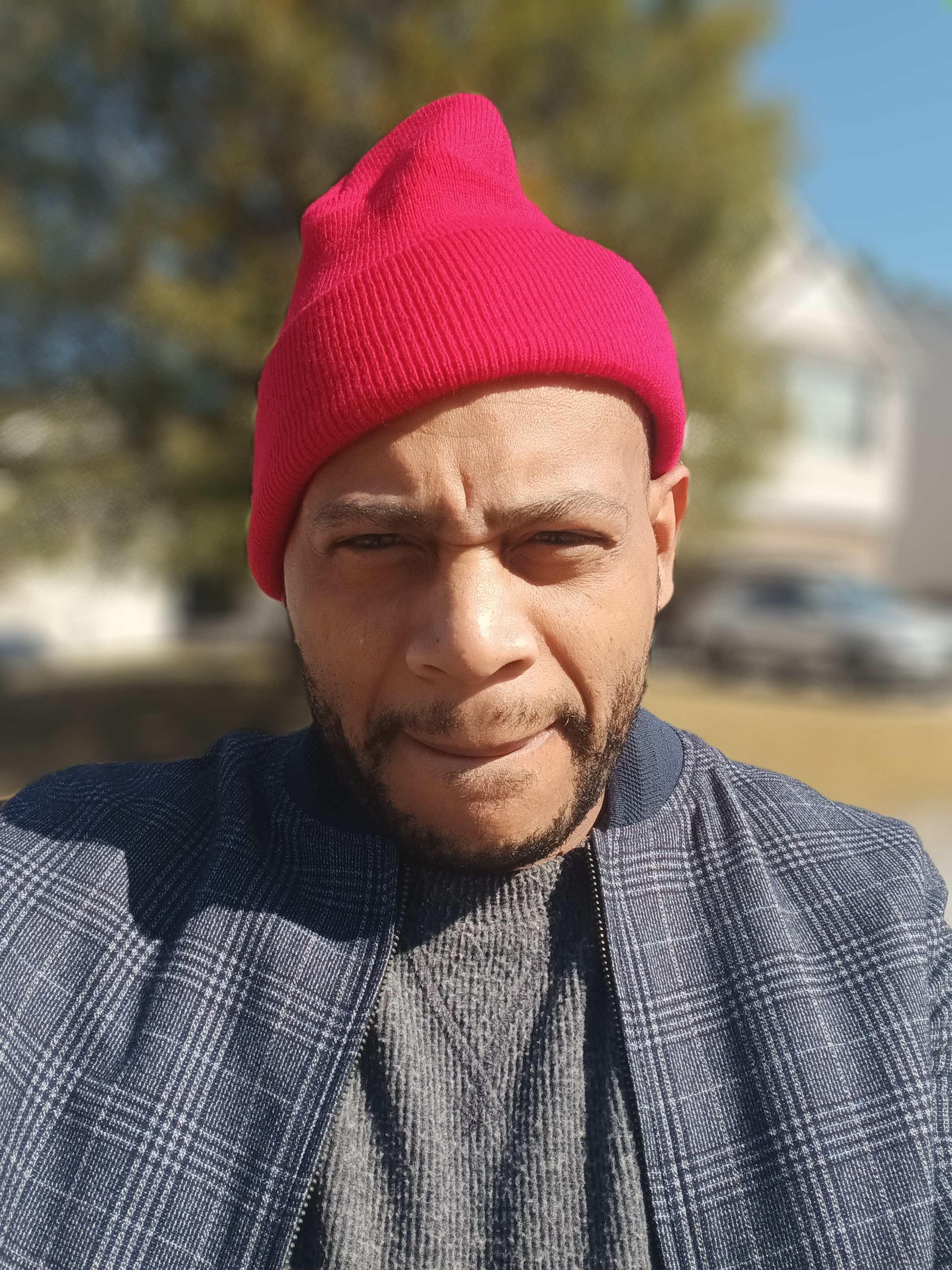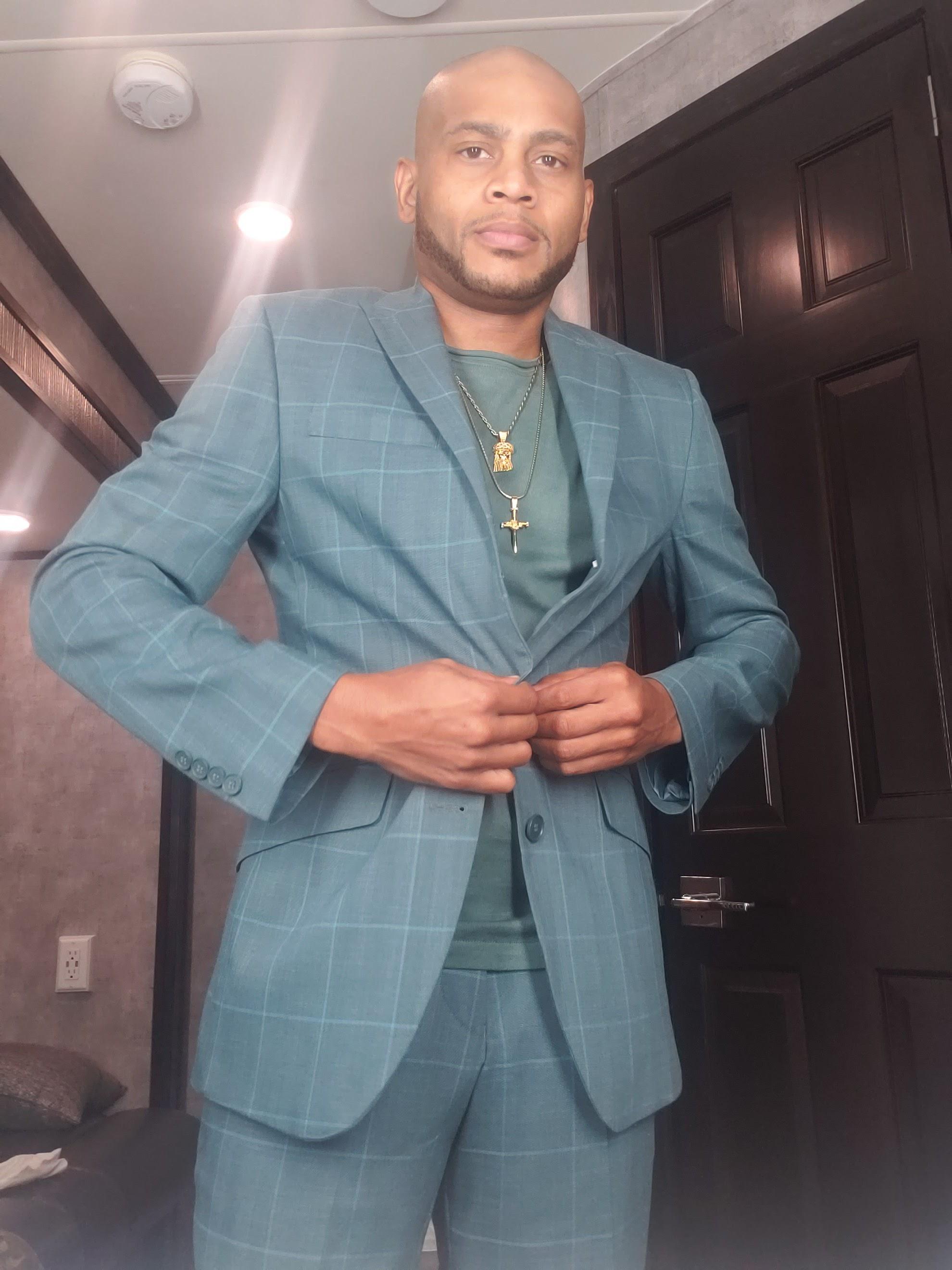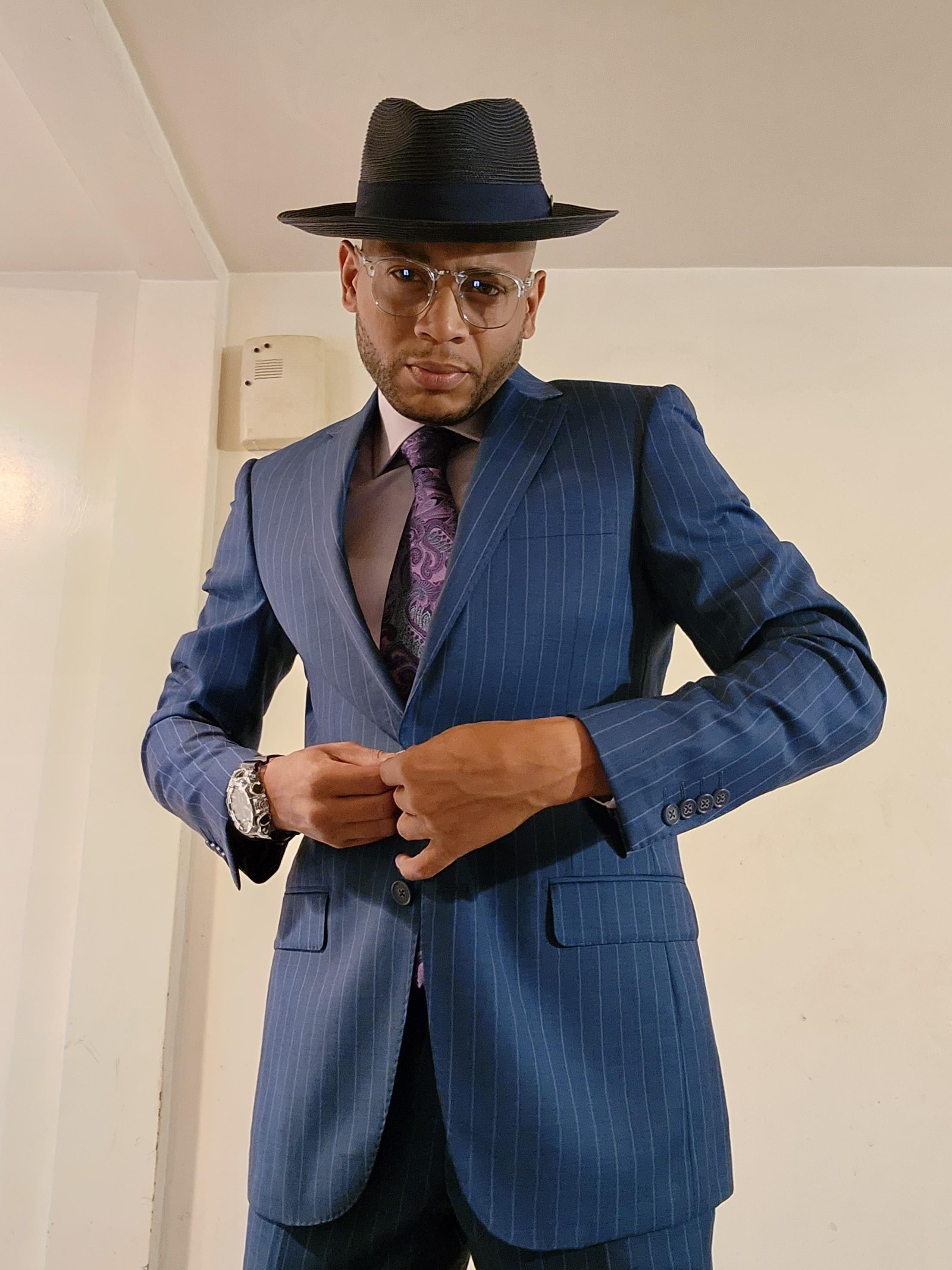
J.D. Williams Shares Exclusive Behind-the-Scenes Stories from The Wire and the Challenges of His New Role in BMF
Actor J.D. Williams opens up about his iconic role as Bodie on The Wire, his latest work as J-Pusha in STARZ’s BMF, and his journey through groundbreaking TV, stage work with Denzel Washington, and new genre ventures.
By Kirby CarrollAug. 12 2025, Published 1:46 p.m. ET

I'm grateful for every interview opportunity, but every now and then, one truly excites me, and interviewing J.D. Williams was definitely one of those moments. The Wire is one of my all-time favorite shows, and his iconic character Bodie Broadus is someone I’ve debated and discussed with friends and family for years.
It was a real pleasure to get a behind-the-scenes look at how he prepared for that role and to hear about the excitement around his current character, J-Pusha, in the hit STARZ series BMF.
This conversation offers a genuine glimpse into what it’s like to be part of groundbreaking shows like Oz and to share the stage with legends like Denzel Washington, while still having the drive to explore new genres like comedy and sci-fi. Here, we focus on how J.D. got his start in acting, share exclusive stories from The Wire, and explore why his role in BMF brought fresh challenges. Check it out below.
BLEU: First, tell me a little bit about yourself. How did you get into acting, and is this something you’ve always wanted to do?
J.D. Williams: I moved around a lot with my mom, bouncing between school districts, and I usually ended up in whatever drama program they had. That kind of became my training, even if I didn’t realize it at the time. Eventually, I went to an arts high school in Newark, New Jersey, which helped me go even deeper into it.
But honestly, when I was younger, I wasn’t thinking about being an actor or performer. I actually wanted to be a lawyer or maybe a scientist. But I’m bad at math, so science went out the window pretty quick. Then I realized how boring corporate law looked, and that dream faded too. So acting kind of found me. I really fell into it during high school and just kept going. Once I had a bit of momentum, I decided to ride with it.
BLEU: Talk to me about your acting style. Are you a Method actor? Because I read once you walked through Baltimore to get inspiration for your character of Bodie in The Wire.
Williams: I'm more of a Meisner guy. My technique is kind of a mix—Meisner, Stanislavski, and Practical Aesthetics. I’ve always thought Method acting was a little too dangerous, especially if you’ve got a certain kind of imagination.
But maybe what you're picking up on is that I don’t mind getting close to my subjects. While I was in Baltimore, I hadn’t really spent time in the city yet. So the night before we shot, I decided to walk around in the middle of the night just to observe. I wasn’t in character or anything, I was just soaking it all in so I could use it later.
I definitely do my research to get as close to the character as I can. That all goes back to my drama school training.
BLEU: So, of course, we have to talk about The Wire because over 20 years later, it’s still so prevalent in conversation. Speaking of, why do you think that is? Did you know how important it would be?
Williams: Not in this sense, no. I didn’t realize The Wire would still be so politically relevant and carry so much weight, even now. I knew it was a great show with amazing actors and writers. I mean, it was HBO in its prime, so I knew it’d be good; I just didn’t know how substantial it would be.
I’m grateful for that because most shows don’t have that kind of staying power. With The Wire, there’s always someone new discovering it. A friend tells them, 'You have to watch this,' and once they do, they’re hooked. It’s like a zombie effect. Once we get you, we got you.

BLEU: Do you think we’ll ever get a reunion?
Williams: Yeah, we’ve been kicking that idea around, just trying to figure out the logistics. There’s so many of us, and we’re all spread out, so it takes some coordination.
But I think it’s totally viable. We already like to get together whenever we can, and if there’s interest—if people want to hear the stories, how everything went down, we’re always open to sharing.
We actually tried to do one last month, but it kind of fell through. Then my man Tray’s house got hit by a tornado. But we’re still around, and I’m pretty sure we’ll make it happen eventually.
BLEU: You know, I wasn’t going to mention that. But how is Tray Chaney doing? Have you spoken with him? I know you two are close.
Williams: I think me and Trey just talked the day before yesterday. Some of us check in every couple of months, but a few of us talk every other week or so. That’s how it is with me and Tray. We’re always checking in on each other.
Sometimes we’ll call and say, 'Yo, they need another Wire person!' We’re always looking out. That’s why you see us together so much; we’re always finding ways to get each other some bread somewhere (i.e., BMF, Saints and Sinners).
But his family is doing well. His son is recovering nicely, and he and Aisha are in really good spirits. Things are looking up for them in the most positive way. So, thank you to everyone who sent donations, prayers, or love. His family is definitely going to be alright.
BLEU: I love how so many of the actors on that series are such a community. What were some memorable onset moments for you?
Williams: Well, we used to shoot on location a lot, so a lot of people who lived in the neighborhoods would hang around and sometimes talk to us during scenes. They’d comment on our clothes, jewelry, stuff like that. Sometimes they’d start yelling out of nowhere.
There were even a few times when there were shootouts nearby, and we had to shut the set down for safety.
We had a lot of people come to set who some of the characters were based on. The real Bodie actually came by, and I got to kick it with him for a whole afternoon.
What’s wild is that Stringer, Avon, and Bodie are all basically versions of him at different points in his life. So we all got to vibe with him and see how he moved.
There was so much happening on that set, but we always had a really good time.
BLEU: Wow, I didn’t know that, and I’m a big fan of the show. Since you got to meet the real Bodie, what was the best and worst thing about playing him?
Williams: I was really surprised that my character ended up being so stand-up, so honorable and straight. I liked that David Simon wrote him with such humanity. I mean, yeah, people could like him, but it wasn’t really about that. It was more about people understanding him.
From season one with Wallace and D’Angelo, all the way through that arc toward the end, where people thought they’d hate him forever but then didn’t. That was one of the best things about playing Bodie.
But honestly, one of the worst moments for me—well, not worst, but hardest—was this one line. It really made me uncomfortable. There’s a scene where Bodie is trying to convince Michael Lee to stay, and he says, 'What you gonna do? Go to school? Become a paid lawyer or astronaut or something?' I hated that line. I had to pull David to the side and tell him, 'This is the most negative line I’ve ever had to say.' I understood why it was there. Bodie was just trying to get Michael to stay, but it went against everything I got into acting for.
It wasn’t even the language. There was no cursing or anything. But that message, that kind of ignorance, is not something young men from where I’m from need to hear. That was probably the hardest line I’ve ever had to deliver.

BLEU: You’re being so honest; I have to stir the pot a bit. What do you think of all the comparisons? I mean, you can’t mention Power or Snowfall without someone mentioning The Wire. Why do you think that is?
Williams: Well, I guess there’s always gotta be a grandfather, right? You need the roots of the tree for people to start talking about it. And in a good way, if we set a standard or precedent and other shows are getting compared to The Wire, then yeah—I’d take that as a compliment. If we're the bar, that’s cool.
That said, I don’t think any of these other shows have the gravity we had. Our show had so much authenticity. And it’s not that the other shows aren’t real—some are based on true stories—but you can see the glorification. The Wire felt different. It felt more like a documentary, if that makes sense. I think it's great that shows are compared to us, but I don't think that it's gonna take something, I don't know, wholly unique and special to, in my opinion, to surpass us.
BLEU: Okay, so speaking of TV, I wanna delve into BMF. You’ve mentioned you don’t watch a lot of TV, but were you familiar with the series?
Williams: Yeah, I wasn’t really watching a lot of TV over the last couple of years. And with all the Wire comparisons, it kind of felt like—been there, done that. Unless something really blows me away or feels like a must-watch, I usually don’t catch it right away.
But I already knew the story behind Meech and what Southwest Tee, so I was kind of keeping an eye on it, waiting to see how it would bubble up. Then I got the call to be part of the show, and of course, once that happened, I had to check it out and see what I was walking into.
I’m glad to be there. It’s got some great actors—Russell Hornsby, Michelle, a few veterans, and some strong young talent, too. Davinici is killing it. Meech is doing his thing. So I had a great time.
BLEU: Was there anything about playing J-Pusha in BMF that really connected with you?
Williams: No (laughs).
I mean, Jasmine Darnell, the writer, said he wrote it with me in mind. But it’s this Midwestern dude with an accent, grills, preppy clothes. I’m thinking, he’s never seen me dress like that or heard me do that accent.
I’m grateful he believed I could pull it off, but I was like, man, this is so far removed from me. And that was actually one of the main reasons I was excited to do it, because I got to play a full character. Gold fronts and the whole shebang.
What’s funny is that people watch it and barely recognize me. They’ll be like, 'Is that Bodie? Or nah?' I don’t even know how to feel about that!
BLEU: I feel like a lot of the people who watch or read these interviews are creatives, actors, folks grinding and trying to figure it out. So, if you could give one piece of advice to an aspiring actor or someone trying to take their career to the next level, what would it be?
J.D. Williams: Same thing I always say, and it’s something my dad still tells me to this day: you’ve got to be persistent and consistent. Keep hitting the same spot the same way, and eventually, you’ll see progress or a breakthrough.
That’s the most realistic advice I can give anybody going after something. People have different levels of discipline, sure, but when it comes to repetition and commitment, you have to make that decision for yourself.
You’ve got to say, 'This is what I’m doing. I’m going straight ahead. I might slow down, but I’m not stopping.’

